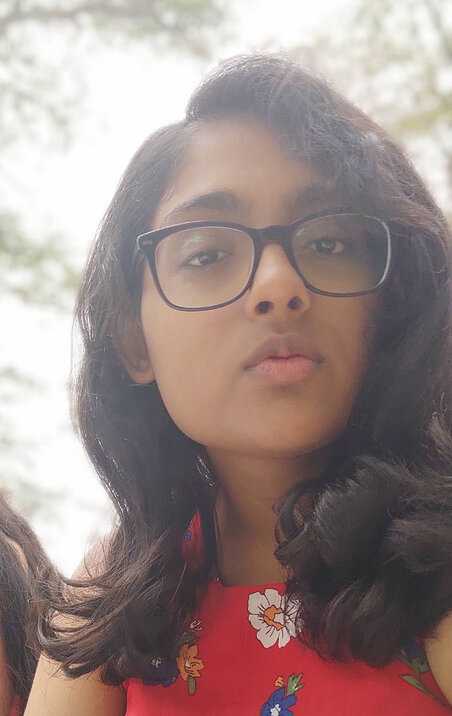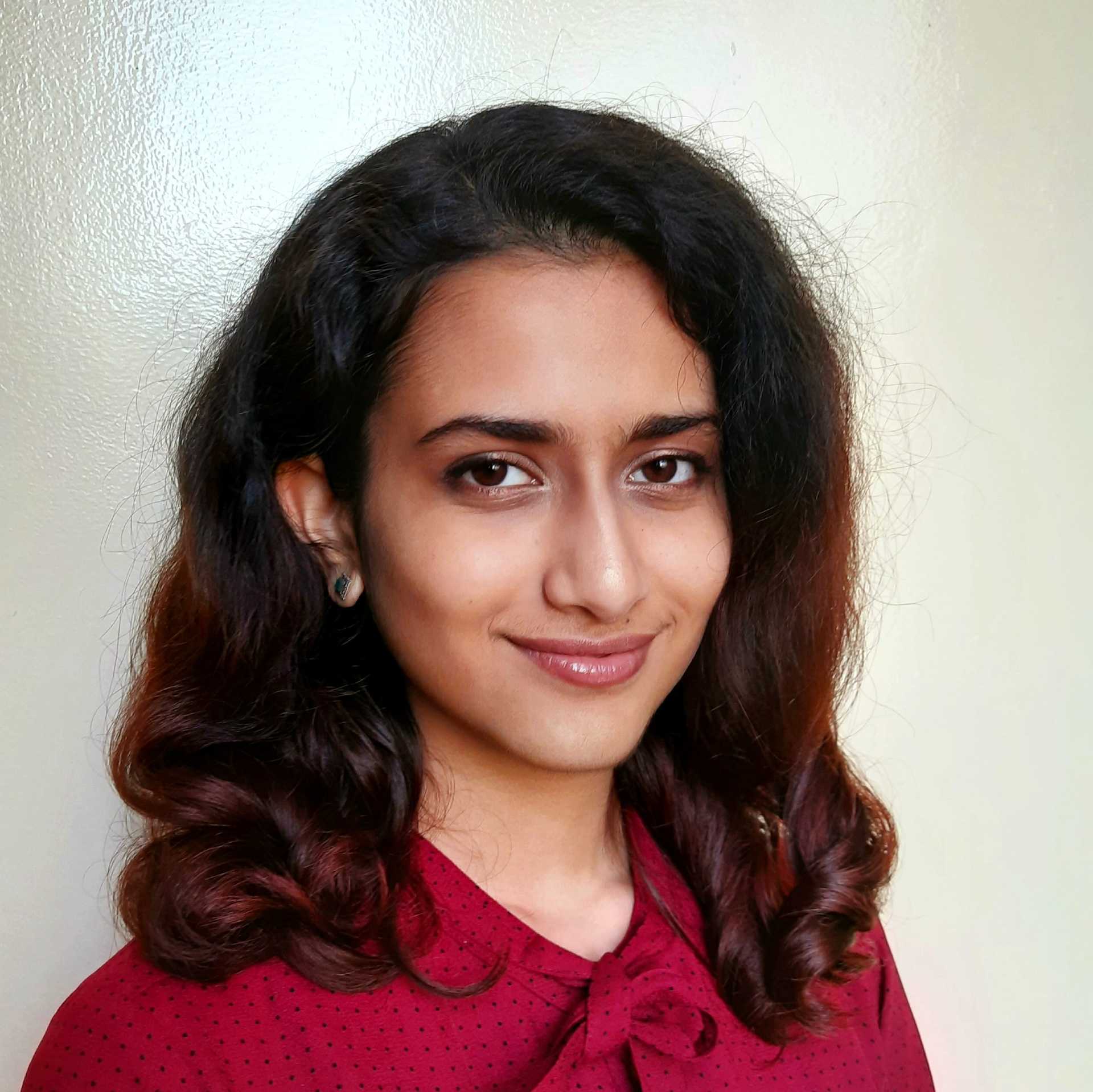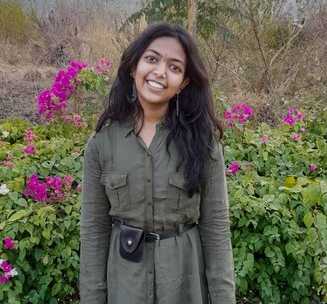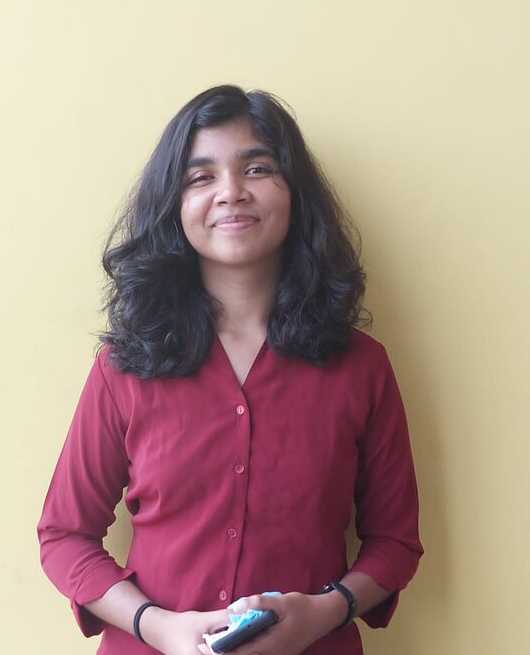Interview with the Director, Prof K.N. Satyanarayana
Campus NewsDebeshee Das, Sneha M S, Krithi Shailya, Sneha Battula
Join us as we decode our Director’s lesser-known side, filled with interesting angles on what it took to get to his position, his favourite weather, academia versus industry, and more!
“You need to reach out to people. And sometimes they’ll be busy, they have so many things on their hand, and they might not be able to give you time. But find those mentors who’ll guide you. Just go for it. You miss 100% of the shots you don’t take.”
Prof K.N Satyanarayana
Finally! It’s our director in the house! Taking time out of his hectic schedule, our highly respected and beloved director, Prof. K.N. Satyanarayana, joined Team Udaan for an interview via Zoom, where we asked him about his life, academic journey, personal values, and some fun questions as well. With Sir at his desk and us in our homes during the semester break, we gathered for the much-anticipated tea-time chat!
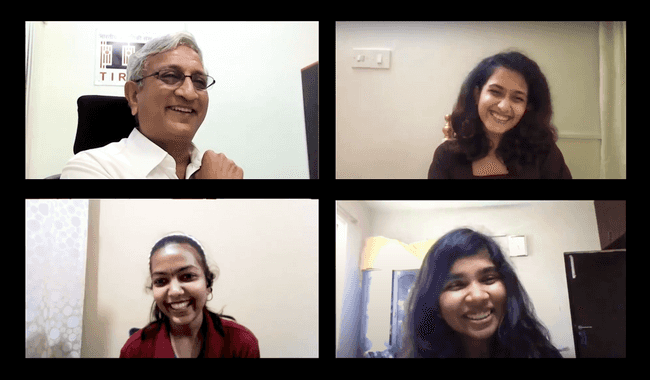
In an interaction that left us with nothing but awe and inspiration, Prof Satyanarayana talks about his daily routine and how he may not be very interested in watching movies, but how he always takes a morning walk with his wife and their dogs.
Prof. Satyanarayana firmly believes that out of everything you learn in your college life, only 50-60% is what you learn in the classroom. The rest is what you learn outside, from your friends and peers, by challenging each other, networking, or exploring new things. Online teaching gives many options, but things like these are still missed out. Opening his heart to us, he says,
"I used to run alumni affairs at IITM, and most alumni say they learned more outside than inside the classroom. Unfortunately, you people missed 2.5 years of that experience, for which you should make up. I was also pretty depressed, coming to campus and finding no students. What is a university without its students?."
Thank you, Sir, for sharing our concerns - all of us had missed the campus just as much and are glad to be back and have things unfold at their fullest potential. Speaking of full potential, we attempted to discover how the director manages to achieve his best daily despite his hectic schedule.
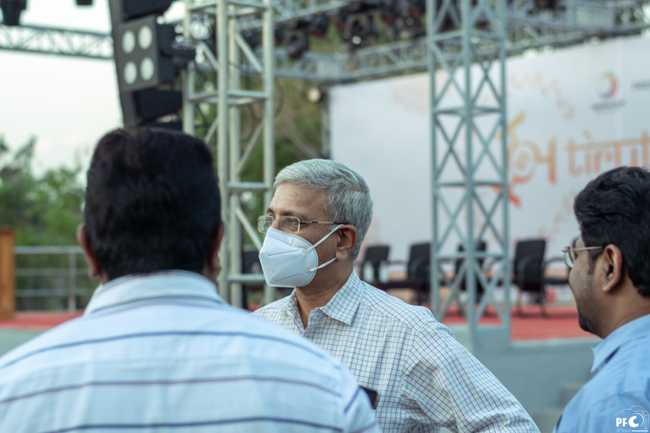
What is your routine as a very busy person?
Typically I wake up at 5:45 or 6:00 am. Around 6:30, I walk around the campus for 35 - 40 min. On my way, I get into one of the buildings being constructed (to check on the progress). My wife and I go on these walks together with our two dogs. After we return, I do some exercises for about 10 min to keep my back flexible. My back complains if I don’t do it for a week. Then, I make my black coffee, go through the online newspaper for about 20-25 min, and get to the office between 9 - 9:30, where there is work. Go home for lunch and come back. Go home for dinner at around 7 pm and get back to work at around 8 pm until sometime around 11- 11:30 pm.
Phew! Take it from our beloved director to turn a hectic schedule into a well-spaced and healthy routine! Setting our alarms to 6:00 am, we continued by talking about the growth of IIT Tirupati through the years. It’s no news that IIT Tirupati has close ties with IIT Madras in many ways.
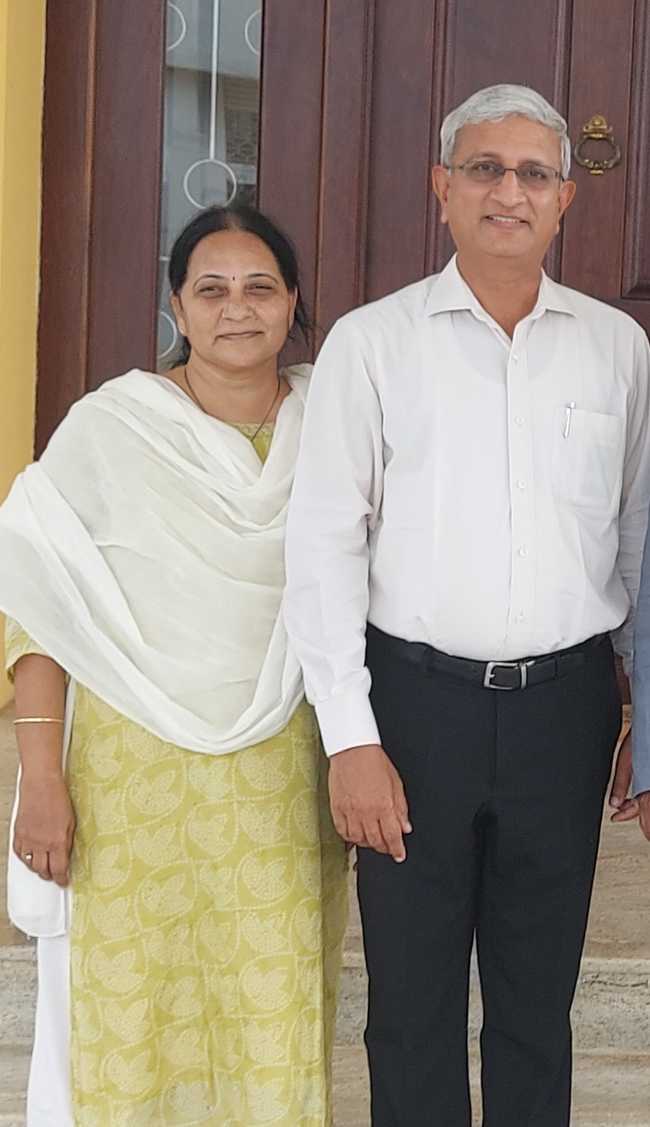
On the topic of what we should observe and adapt (or not adapt) from the older institution, Sir comments,
"IITM has been ranked as a top institution consistently for seven years. It has got very strong fundamentals. They are a little bit on the conservative side but are serious about what they do. Whereas with a new institution like us, we are much more agile, not bound by legacy issues; you have all these opportunities to adapt and get in quickly. However, I am biased about IITM, having studied there and worked there. But I see this in other institutions as well. On the whole, all the IITs are coming up really well."
With our campus reaching greater heights in education and innovation each year, we couldn't agree more! As the director sipped his beverage, ready for his next question, we switched things up a bit.

What kind of weather makes you feel like your best self?
The weather in Tirupati in December, January, and February, when the temperature goes down to around 17-18 degrees, that kind of weather. That’s when I feel really nice. Of course, being on this campus with mountains as the backdrop when it rains - it’s a beautiful atmosphere with clouds hovering over the mountains. I like the moderate weather. I do like to experience the cool weather once in a while. But being brought up in Chennai, sweating a lot, where there is high humidity, I prefer a moderate climate.
Wouldn't we all love a little bit of a pour in the scorching summer seasons too?
We then talked about some of Sir’s noble work with PARFI, the Pan IIT Reach for India Foundation, of which Sir is a board member. The organisation comprises IIT alums who dropped out of their corporate sector jobs, looking to serve society. They train almost 8000-10000 people every year, make them job-ready, and ensure placements. Out of the 30 gurukuls, around 17-18 are construction-related, and the others focus on nursing, warehousing, etc.. He says,
"One of the biggest challenges in our country is the lack of trained manpower. Most of our labourers are migrants from states like Jharkhand, Chhattisgarh, West Bengal and Orissa. The challenge is, how do we train them?."

With Sir’s impactful initiatives changing many lives, we couldn’t help but wonder about what changed his life and impacted him the most.
What is one defining moment in your life that taught you a lot?
There’s no specific defining moment. You sort of grow into the person you are today based on the situations you face and what you experience. For example, I lost my father when I was in 10th class. But I was in a very good environment, having been brought up on campus and everything. I had a lot of supportive family and friends and all that helped.
And going for my masters in the US. As I mentioned earlier, I was an average student at IIT Madras. Once I saw how the professors were passionate about what they were doing and how they worked, I got serious. I never thought I would become an academic when I was doing my undergraduate.
I’m not a believer in the thought that someone can make up their mind as to what they’ll do for the rest of their life. Only when you experience something you’ll become aware of what is there.
One thing that I always did was do things differently than what others did. I did a master’s in Construction Engineering Management. I think I was the first student from IIT Madras to go into this area. Civil students usually preferred structures or transportation. This gave me a chance to return to India and establish a strong leadership program at IITM. If I had also chosen structures like many others, I wouldn’t have been able to compete with them, and the situation would have been different today.
With new career opportunities in the industry by the day and the rising urge to blindly close your eyes and go down the path of many others, we were highly inspired by the director’s motivation to stand out. Reflecting further on his life, we took a trip down memory lane to his student days.
How would you describe yourself as a student? The stereotypical first bencher? Last bencher?
I was somewhere in between. As a student, I was always in the middle of the class regarding academic performance. I was quite regular to my classes, not bunking them. I was also the class representative.
What is the last movie that you watched that left a lasting impact on you?
That’s a tough one because I very rarely watch movies. My wife loves movies. That’s one of the problems she has with me: I’m not an enthusiastic movie-goer, and she has to find someone else to go with instead. (laughs)
It’s been quite some time since I last sat down and seriously watched a movie. That, too, one that left a lasting impression! Okay, one that might be it is Mughal-E-Azam, which I saw at IITM when the colourised version came out, in maybe 2009. That was the first time I saw Mughal-E-Azam, but it was made so well for a movie that was made sometime in the 50s. And the songs from that, I just loved them!
Bracing ourselves for some performance feedback, we asked the director what he liked most about the students of IIT Tirupati. Satyanarayana Sir shared some of his pride,
"On the whole, of course, there are some exceptions, they are very mature, understanding, and bright. As we are a new institute starting from scratch, and the students have been very understanding of the challenges we have as a growing institute."
He goes on to say with a laugh that despite it being vital for us to be focused and purposeful if a few students weren’t off the typical path, then where would the fun be found?
Constructive criticism was also offered, which some of us could learn from. Sir believes that students of all IITs should be more passionate about their chosen fields. As students who have nailed school, coaching and college standards of education, he believes that we are very capable of doing well in the subjects we take if we delve into them with more interest and a hunger to learn. Mentioning that most students focus on placements with the primary intention of securing a glittery package, he emphasises the need to make a career out of what we do rather than simply make a rich number out of it. He feels that if the students were passionate, the faculty would naturally get more excited about teaching and not have to motivate themselves.
“If you’re passionate about what you’re doing, it is not a big burden. You will enjoy what you’re doing.”
He also wishes that we students would make more use of the opportunities provided to us-
"While we have brought in some top-notch people to give talks in our Institute, the students have not shown interest in attending them and interacting with them."
How does one know if they are better off in academia or industry? Is it ever too late to decide?
It is an evolving thing. When I was doing my B-Tech, I thought there was no way I would be an academic. Even during my master's, I still didn’t consider academia as a possible career option for me. During my master’s thesis work, I started developing an interest in research. I decided to do a PhD and then take a call. Whether I have an aptitude or an interest in teaching? Luckily, the US universities let senior PhD students take a full course. I was given an opportunity to teach a course. After that, I decided that to purse an academic career. So, it’s something that evolves. I am not saying you should not have goals. But you should be open to experiences that open up other options.
There is a possibility that we might not get to experience a few things and miss out on some of them. The generation I came from was where the families were not that well off, the opportunities were not as many, and getting a job was very important. Today’s kids have many more options. Their decision need not just be based on, “Am I able to put the roti on the table or not?” This was the primary motivation for a generation before mine. I was in the transition generation. You people have many more options and cushions to support you if you fail.
The freedom you get as an academician, you don’t get in any industry. The industry is all about the company's objectives; you need to be aligned with that - you can’t do what you want. This was one of the reasons why I got into academics. Everyone has a different personality. I have visited nearly 30 countries during this period, and all these opportunities are fulfilling*.
Do you have any tips or tricks on how students can learn to network with professionals, other students, and professors?
You need to simply reach out to people. And sometimes they’ll be busy, they have so many things on their plate, and they might not be able to give you some time. But find those mentors who’ll guide you. Just go for it.
Recently, I was involved in structuring an event, organized by Pan IIT India and Joy Thomas Foundation, on ‘Women in STEM’. Many speakers talked about mentors- identifying a mentor and getting their help. And that requires you to reach out to people. Two speakers in that panel said,
“If you don’t ask, the answer is a no. If you ask, the answer is yes or a no.”
I am quite in touch with all my friends. I used to be involved in running the Alumni association of my school, KV IITM, at campus and raised about ₹30 lac for upgrading the school infrastructure, starting initiatives for teachers, and all such things. I am quite networked that way with my friends, school friends, IIT friends, and post-graduate Clemson friends. As I told you, we went through some difficult times. And people were so helpful because we maintained the relationship. My idea of a good time is actually being in touch with these people and catching up with them and such. My relationships with my relatives are also well-maintained with regular contact.
To all the people binging on your next show, take a break and make some friends. Here’s a friendly reminder to check on your friends and family and help them through their tough times! Speaking of tough times, managing a developing institute is no easy task and takes quite a toll! With establishing initiatives, setting up foundations, and so much more, we wondered how the Director manages his mental health and daily life.
How do you take care of your mental health? Any tips for the rest of the IITT family that you’d like to share?
The most important thing is when I go to bed at night, it takes me one minute to fall asleep. I just lie down on my bed, and then I’m gone.
Don’t carry your baggage to your bed.
I don’t sleep for too many hours; I sleep for about 5.5 - 6 hours, but deep sleep. Once I’m asleep, I automatically wake up at 5:30 - 6:00 am.
Basically, the thing is to align your goals with the goals of the institution and the setup. If you’re very much focused on yourself, and if you think you’re competing with others, you need to do this, that, etc., then you’re going through a lot of stress. My way of looking at things, even as an assistant professor, has always been - Is this in the interest of the institute? Is this in the interest of my group? Then, is it my interest? That was the priority order. Once you do that, you’re not too stressed. But if you’re in a rat race, you’re obviously under too much stress.
And do not carry any grudge. If you’re in a disagreement with someone - maybe a professional disagreement - leave it at that, and then you keep moving. Don’t carry it forward by thinking, “That time this guy said that, so this time I’ll say this.”
Many people ask me, “Oh, you’ve got this directorship. Do you like it? How are you the same?” Having taken up the position, I think it’s better that you enjoy the role. But if you say it’s such a burden or all these kids are such pain or the employees are creating such a headache for you, then they are going to.
The most important thing is to take things as they come along, and as long as you look at an issue and say it’s aligning with the interests of the institute, or at some stage, even the nation, things become easy. You won’t be carrying baggage. Sometimes you may disagree but say it nicely.
As one of my senior colleagues used to say, “You call a spade a spade. You don’t have to call it a bloody spade.”
As pointed out rightly by our Director, letting go of the things that don’t align with your interests is a choice we could make. We can also agree that we have all been in situations as he described where we’d have loved to lash out and make things worse for the momentary satisfaction of relieving some stress. Perhaps we may take a leaf out of his book and experience the benefits of balancing our emotional urges.
Approaching the end of an eventful evening, we decided to finish off with a classic Udaan Touch to the interview. Inspired by our article on a hypothetical Second chance at life for the final years, we asked our Director how his life would have been if not for his current line of choices.
If not engineering, what would you have done?
When I was doing B-Tech, I thought I would get into management, go to an IIM and get into a management job or something along those lines. Then I went for my master's. That was not by choice, though. You know, in IITM in those days, 70% of the students would go abroad. Everyone was applying for a master’s, and I also applied with the crowd. You could call it herd mentality. Suddenly I got an assistantship. So I thought, “I am getting an assistantship - I should go for a master’s.” In fact, at that time, I had this job at Bharat Petroleum, which I had joined for two days. On the second day, I went to work and got my assistantship letter. Among my friends, four of us had joined the company, and three of them continued there. In fact, one of them came to see me two weeks back. By the way, all of them are retiring; we are all in our sixties.
One thing that was clear to me in my mind when I went was: everyone who went abroad those days (as I said, 70% went abroad those days, now it’s down to 10%), the majority of them would say they would work for a few years, get some experience, make some money, and come back. But I was very clear and fixated about coming back. I flew back one week after defending my thesis, not getting into that trap. I had observed this quite a bit while I was doing my master's and PhD that people would say they would work for only a few years, but it is very difficult to get out of that trap; 90% of them don’t come back. I didn’t make money, but I was clear on returning, and I knew IITM and IITD were looking for faculty in my particular area. And I haven’t repented taking that decision for even a second.
Having spent the best time listening to stories and experiences of wide ranges and laughing over answers and details that none of us could have expected, it was time to wrap up our session, but not without the professor highlighting the people he admires most (perhaps a sort of vote of thanks to them), dedicated to many:
“There’s not just one person. In terms of being role models, some of the previous directors of IITM who have been my mentors, Prof. M S Ananth, Prof. Bhaskar Ramamurthy, former director of IITD, Prof. V S Raju, all these people and a lot of industry leaders. I had an opportunity to work with some of the top industry leaders like Dr A Ramakrishna, Deputy Managing Director of Larsen & Toubro Construction, who is an amazing gentleman and one of the most positive people I’ve come across, always smiling and coming up with a win-win solution for any problem. A lot of my other friends, like Santhanam, who was the Chief Guest for our last convocation, from Saint Gobain. I used to be Advisor of Alumni Affairs at IIT Madras, so I got to know many of these guys quite well, like Kris Gopalakrishnan, the co-founder of Infosys. I really admire the way they handle things: they are very committed to doing what they do, very focused, and are people of high integrity.”
It’s time we, in turn, highlight the people we look up to the most. We humbly admire our Director for his tireless efforts with the utmost respect for him. Professor K.N Satyanarayana is a name that is inspiring to many. His immense experience and invaluable knowledge make him an unmistakable example of hard work, determination, and consistent effort. As students, we see an amazing yet approachable director who has our best interests aligned with the institute's goals. We thank the Director for taking his time out for the interview and sharing his thoughts with us.
